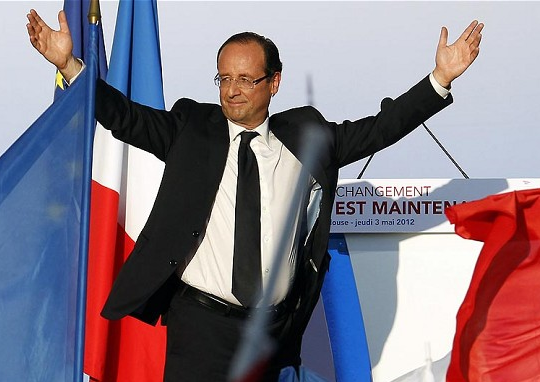Not content with ruining his own country’s economy and seeing some of its best and brightest flee to freer lands, the French President, François Hollande, is trying to spread his own particular flavour of socialism across Europe via everyone’s favourite enemy of freedom, the European Union.
Paris, home of 70 percent income tax, has for a long time supported harmonisation of tax rates across EU member states. With one of the highest income tax rates in the world, the French government argues that low tax rates prevent the smooth working of the European Common Market. Now, Hollande’s government is pushing a long mooted idea, heavily backed by the European Commission, for a common tax base for the European banking sector.
This is nothing new; the European Commission has spent years attempting to harmonise national corporate tax systems but has faced resistance from the UK, Ireland, Lithuania and others. Of course, this “harmonisation” would never be towards a lower tax system.
The Commission is of the view that harmonised systems will create growth and jobs while boosting competitiveness of EU countries; the proposed Common Consolidated Corporate Tax Base (CCCTB), initially suggested in 2001, hasn’t taken off because member states have so far protected this area of national sovereignty.
But once again, the Commission are on the march with France at the helm; the Eurozone crisis and ‘Euro Plus Pact’ for greater fiscal and economic convergence have – in the opinion of the Commission – created a chance to push their plans forward and with the election of Juncker to the Commission top job the City would be wise to be concerned.
Needless to say, it is proving unpopular and France has less a mountain to climb than the entirety of the Himalayas. But this year alone Hollande has called for harmonisation with France’s “largest neighbours” by 2020; one can only assume that as well as Germany, the Benelux states and Italy, Hollande has Britain and the City of London in his sights too.
The French Council of Economic Analysis (CAE), one of Hollande’s advisory boards, has spoken out in a report titled Tax Harmonisation in Europe: Moving Forward of the “negative effects” of fiscal competition and how to tackle them.
I would propose that the problem they face is not convincing member states that consolidation is the way forward but of accepting that fiscal competition is without doubt a positive thing, one that can only lead to greater freedom, transparency and altogether a lower tax regime across the continent.
Fortunately, there is less chance of Britain acquiescing than of Hollande getting a second term, but as ever the British press have been rather quiet on an issue that could have a phenomenally crushing effect on the City of London, not to mention other players in Europe’s financial sectors. We already have one harmonised EU tax in the form of VAT; today has seen an economic forecast by PWC that predicts the UK retaining it’s relative global position, overtaking France in GDP and beginning to overtake Germany.
This is in no small part due to our relative flexibility and that flexibility includes the ability to set our own tax rates. The report suggests that by 2020 the UK could have the fifth largest economy, despite the growth of India, by leapfrogging France; given the option of economic greatness or Hollande’s desired harmonisation, I think the choice is clear.
Cameron’s crushing defeat to Juncker, the European Commission’s openly federalist new President, has paved the way for further political and fiscal union. Now, more than ever, the British Eurosceptics cannot sit on the laurels of UKIP’s recent win and an elusive referendum promise in three years’ time.

COMMENTS
Please let us know if you're having issues with commenting.